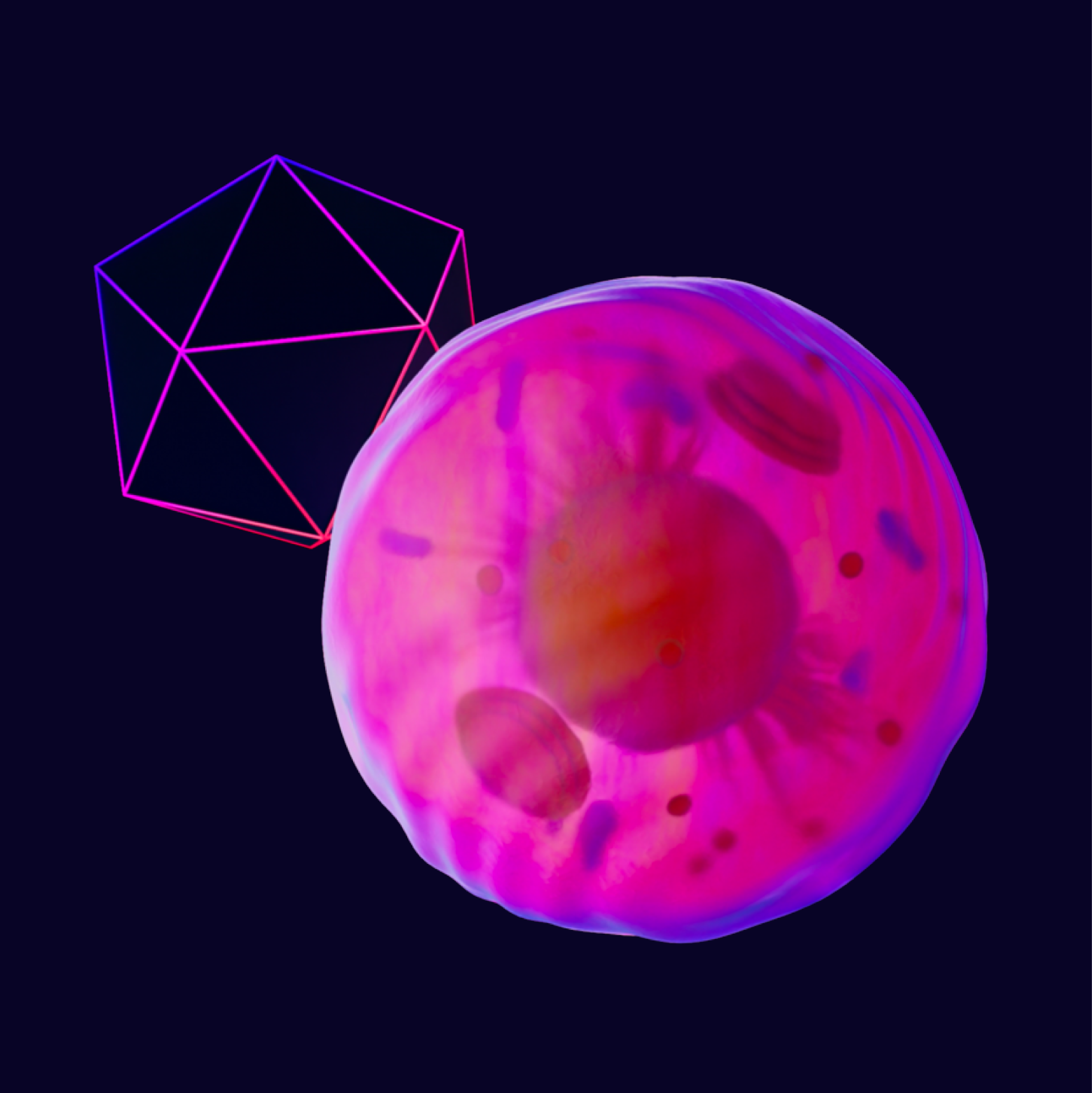
- High Performance: Stable adeno-associated virus (AAV) cell line development service results in titers up to 6E15 vg/L before purification, in under 20 weeks.
- Improved Quality: Fully stable clonal cell lines integrate all essential viral genes and transgenes, reducing batch variability and delivering more consistent product quality.
- Reduced Cost of Goods: Transfection-free AAV manufacturing eliminates GMP plasmid costs while reducing supply chain risk, enabling greater scalability, and lowering batch-failure risk.
Boston, MA, October 6, 2025–Asimov, the synthetic biology company advancing the design and manufacture of therapeutics, today announced the launch of its AAV Edge Stable Producer System. With this launch, Asimov aims to address the shortcomings of traditional transient transfection-based production and bring AAV manufacturing standards closer to those established for antibody-based biologics.
A major challenge in AAV gene therapy has been developing scalable, cost-efficient processes to reliably produce high-quality vectors. Most programs still depend on transient production, which requires multiple GMP plasmids to be transfected every batch. This approach drives up costs, introduces supply chain risk, limits bioreactor scalability, and can potentially result in inconsistent product quality.
Asimov’s AAV Edge Stable Producer System brings AAV manufacturing in line with the gold-standard practices long established in protein biologics. By stably integrating all essential viral genes into the genome of HEK293 cells, Asimov generates high-titer, clonal producer cell lines. Stable clones eliminate the need for costly GMP plasmids, enable straightforward scale-up in bioreactors, and minimize batch-to-batch variability. The result is lower manufacturing cost, more consistent product quality, and the potential for safer, more effective AAV gene therapies.
Asimov’s new offering delivers research cell banks (RCBs) within 20 weeks that contain the desired capsid and transgene. Therapeutic developers receive clonal, suspension-adapted, fully stable AAV HEK293 producer cell lines that enable reliable manufacture of gene therapies at scale, with titers up to 6E15 vg/L before purification.
“It’s no secret that the gene therapy field has gone through several painful years recently, but the fact is that gene therapy remains our best shot at treating many of the world’s most intractable diseases. We firmly believe in the potential of this modality, and stand alongside the patients and scientific pioneers who continue to push the field forward,” said Alec Nielsen, co-founder and CEO of Asimov. “Together, we're pulling every lever available to improve scalability, safety, efficacy, quality, and cost. Stable producer cell lines are one of the technologies needed to unlock the next generation of gene therapies. I’m incredibly proud of our team for achieving this technical milestone in synthetic biology, and excited by the validation we’re receiving from pharma partners on their gene therapy programs.”
Today’s launch further expands Asimov’s offerings in cell and gene therapy, which now include stable producer systems for both lentiviral and AAV manufacturing. Additionally, the AAV Edge Stable Producer System complements Asimov’s existing AAV payload design capabilities, which include tissue specific promoters and expression optimization tools. To learn more about the AAV Edge Stable Producer System, please visit https://www.asimov.com/aav-edge-system?tab=aav-stable-production.
About Asimov
Asimov’s mission is to advance humanity’s ability to design living systems, enabling biotechnologies with outsized societal benefit. The company is developing a synthetic biology platform – from cells to software – to design and manufacture next-generation therapeutics, including biologics, cell/gene therapies, and RNA through a combination of products, services, and collaborations.
Founded by bioengineers from MIT and Boston University and headquartered in Boston, the company has raised over $200 million from top institutional investors including Andreessen Horowitz, CPP Investments, Horizons Ventures, and Fidelity Management & Research Company. For more information, visit www.asimov.com.














